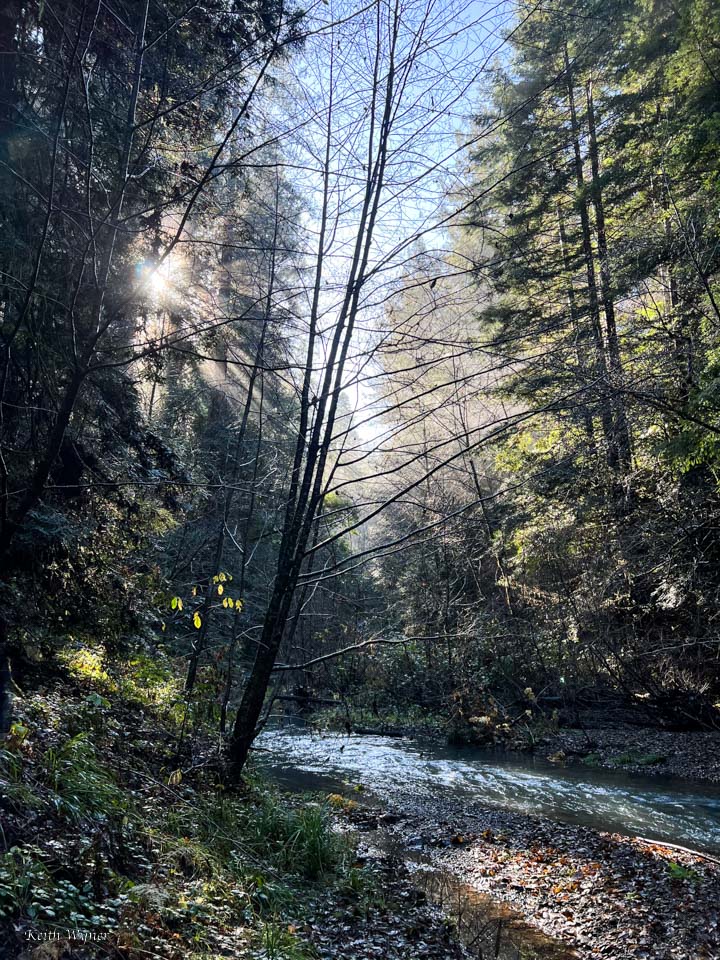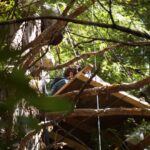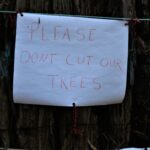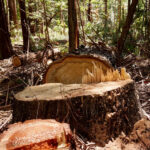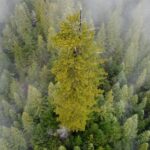Jackson Forest advocates will testify at Jackson Advisory Meeting in Ft. Bragg
Sept. 12, 2023
Ft. Bragg, CA-A large turnout of forest advocates and the public is expected at the upcoming meeting of the Jackson Advisory Group (JAG) on Sept. 15, 2023, at the First Presbyterian Church, 367 South Sanderson Way in Fort Bragg, to discuss the future of the Jackson Demonstration State Forest (JDSF). The meeting is scheduled for 9 am to 12:30 pm.
The JAG is the citizen body tasked with advising CalFire in their management of Jackson Demonstration State Forest. The Coalition to Save Jackson Forest is calling for environmental review of a new management plan and is insisting that no new timber harvest plans be considered during the process.
CalFire, the agency that manages JDSF, is asking the JAG to approve the “Scope of Work” for preparation of a new forest Management Plan at this meeting. The management of Jackson Forest has generated increased controversy and sharp criticism over the last few years due to unfulfilled promises of crafting a co-management agreement with area tribes in accordance with a state directive from Governor Newsom.* CalFire has now omitted environmental review of the new forest management plan, ignoring climate and other environmental considerations, and is restarting logging plans, ending a pause in logging put in place specifically to work these issues out.
Both State Senator McGuire and State Representative Wood have stated in writing that a new management plan is needed before new timber harvest plans are approved. Kim Rodrigues, the facilitator hired to run JAG meetings in a more collaborative manner, recently quit, stating in her letter of resignation that the current process wasn’t working. Ms. Rodrigues stated “The process is not truly collaborative. CalFire announces the projects and timelines, seeks limited input with limited dialogue and makes decisions. I am willing to support a collaborative process if/when the State and CalFire commit to such a process.”
Priscilla Hunter, Tribal Historic Preservation Officer for the Coyote Valley Band of Pomo Indians, will be appearing at the JAG meeting to express the frustration of the Coyote Valley Band of Pomo Indians with CalFire’s failure to respond to the Tribe’s efforts to obtain from the State a mutually agreed upon definition of tribal co-management prior to CalFire moving forward with the drafting of a new Management Plan. Last year CalFire suspended government to government consultation with the Tribe and simply moved forward with its own definition of what the state’s relationship with Tribes will be.
CalFire’s current proposed process for management plan revision includes only three meetings of what they call a ‘tribal advisory council.’ Prior advisory group recommendations on forest management at JDSF have been vetoed by the State Board of Forestry, and given this precedent the Tribe cannot accept merely an advisory group status. The Coyote Valley Band of Pomo Indians is calling for equal co-management, not advisory status, and has repeatedly requested over the past year that the State reinitiate government to government consultation with the Tribe to resolve this issue, rather than moving forward over tribal objection and unilaterally defining the Tribe’s role.
The California Democratic Party recently gave a unanimous official endorsement to tribal co-management in JDSF. This represents statewide support for tribal co-management on a level heretofore not seen, as the Democratic Party represents 10 million registered California voters.
The Coalition to Save Jackson Forest, includes forestry experts, attorneys, activists and Mendocino County residents long involved in advocacy for preservation of the values of Jackson Forest —including protection of sites sacred to local tribes and mature redwood forest habitat, an important counter to the climate crisis in its carbon sequestration and storage capacity.
“The immediate concern is that CalFire is going forward with creating a new management plan without any intention to conduct environmental review of the new management plan, effectively limiting tribal and public participation and oversight of how Jackson Forest will be managed into the future,” said Matt Simmons, staff attorney for E.P.I.C. “The California Environmental Quality Act (CEQA) is the foundational tool for protecting the environment when projects such as development, resource extraction, or changed forest management are proposed. CEQA defines a “project” as ‘an activity which may cause either a direct physical change in the environment, or a reasonably foreseeable indirect physical change in the environment…’ (Pub. Rec Code § 21065), so by skipping environmental review, CALFIRE is saying that their new management plan won’t change, or improve, the physical environment in JDSF.”
Additional concerns raised by members of the public include CalFire delegating tribal government to government consultation to a consultant hired by the State, the lack of tribal participation and leadership in the new management plan process, the fear that the process will be directed by Sacramento and not locals, and the fact that CalFire has restarted the process of approving logging projects.
CalFire’s proposal to launch an update of the Management Plan was initially met with support from the Coalition and the public, as the current plan is outdated. The current MP does not take into account the interest of the indigenous people whose ancestral homeland includes this forest, nor does it adequately consider sacred sites, nor make provision for the crucial role the forest’s redwoods play in mitigating the climate crisis. The current management prioritizes and indeed, mandates commercial timber harvest.
###
* Background on tribal involvement:
In 2019 Governor Newsom signed executive order N-15-19 which apologizes for the State’s historically sanctioned depredations and prejudicial policies against California Native Americans, reaffirming and incorporating by reference the principles of government-to-government engagement outlined in Executive Order B-10-11 and establishing a Truth and Healing Council. Executive Order B-10- 11 (Governor Brown, 2011) states that “Every state agency and department shall encourage communication and consultation with California Indian Tribes”.
In a further Statement of Administration Policy (2020), the Governor states that “… it is the policy of this administration to encourage every State agency, department, board and commission… subject to my executive control to seek opportunities to support California tribes’ co-management of and access to natural lands1 that are within a California tribe’s ancestral land and under the ownership or control of the State of California.” The Policy further states that “any action taken in accordance with this Policy shall: (i) comply with all applicable laws and regulations…”
Additionally Executive Order N-82-20, acknowledges that “since time immemorial, California Native Americans have stewarded, managed and lived interdependently with the lands that now make up the State of California.”
1 PRC § 9001.5(d)(2) Defines “Natural Lands” as “lands consisting of forests, grasslands, deserts, freshwater and riparian systems, wetlands, coastal and estuarine areas, watersheds, wildlands, or wildlife habitat, or lands used for recreational purposes such as parks, urban and community forests, trails, greenbelts, and other similar open- space land…” PRC 9001.5(d)(1) Defines “Working Lands” as “lands used for farming, grazing, or the production of forest products.” For purposes of this report, we assume JDSF contains both types of land.


